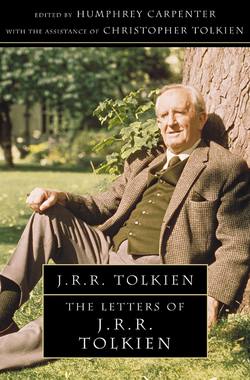Читать книгу The Letters of J. R. R. Tolkien - Christopher Tolkien, Christopher Tolkien - Страница 63
58 To Christopher Tolkien
Оглавление[A description of a visit to Birmingham, where Tolkien was attending a lunch given by the new headmaster of his school, King Edward’s, which since his schooldays had moved to new buildings in another part of the city.]
3 April 1944 (FS 13)
20 Northmoor Road, Oxford
My dearest,
I wrote you an airgraph1 on Thursday last at night; but unfortunately it was not sent off on Friday, and on Saturday I went off early and in a rush to Brum. So it has only gone today. Nothing more has come from you since yours of 13 March (arrived 28). I can’t remember much about Friday, except that the morning was wrecked by shopping and queueing: result one slab of pork-pie; and that I had a dreadfully bad and lugubriously dull dinner in college, and was glad to get home before 9 p.m. But I have begun to nibble at Hobbit again. I have started to do some (painful) work on the chapter which picks up the adventures of Frodo and Sam again; and to get myself attuned have been copying and polishing the last written chapter (Orthanc-Stone). Saturday was a memorable day. Grey, damp and unpleasing. But I got off about 9 a.m. Cycled to Pembroke and deposited bike and lamps. Caught the 9.30, which (just, I suppose, because I had time to spare) left Oxford on time (!!!), for the first time in human memory, and reached Brum only a few minutes late. I found myself in a carriage occupied by an R.A.F. officer (this war’s wings, who had been to South Africa though he looked a bit elderly), and a very nice young American Officer, New-Englander. I stood the hot-air they let off as long as I could; but when I heard the Yank burbling about ‘Feudalism’ and its results on English class-distinctions and social behaviour, I opened a broadside. The poor boob had not, of course, the very faintest notions about ‘Feudalism’, or history at all – being a chemical engineer. But you can’t knock ‘Feudalism’ out of an American’s head, any more than the ‘Oxford Accent’. He was impressed I think when I said that an Englishman’s relations with porters, butlers, and tradesmen had as much connexion with ‘Feudalism’ as skyscrapers had with Red Indian wigwams, or taking off one’s hat to a lady has with the modern methods of collecting Income Tax; but I am certain he was not convinced. I did however get a dim notion into his head that the ‘Oxford Accent’ (by which he politely told me he meant mine) was not ‘forced’ and ‘put on’, but a natural one learned in the nursery – and was moreover not feudal or aristocratic but a very middle-class bourgeois invention. After I told him that his ‘accent’ sounded to me like English after being wiped over with a dirty sponge, and generally suggested (falsely) to an English observer that, together with American slouch, it indicated a slovenly and ill-disciplined people – well, we got quite friendly. We had some bad coffee in the refreshment room at Snow Hill, and parted.
I then strolled about my ‘home town’ for a bit. Except for one patch of ghastly wreckage (opp. my old school’s site) it does not look much damaged: not by the enemy. The chief damage has been the growth of great flat featureless modern buildings. The worst of all is the ghastly multiple-store erection on the old site. I couldn’t stand much of that or the ghosts that rose from the pavements; so I caught a tram from the same old corner at which I used to catch it to go out to the playing fields. Down the shabby (much bomb-pocked) Bristol Road to Edgbaston Park Road at 12.15 (half an hour too soon). I won’t weary you with impressions of the ghastly utterly third-rate new school buildings. But if you can imagine a building better than most Oxford colleges being replaced by what looks like a girls’ council school, you’ve got it and my feelings. And apparently the new Head Master’s. In a speech after lunch he hinted (or more than that) that they were pretty foul, and the school would never recover from the blow if something was not done about it. There were about 120 Old Boys (out of 220 asked): many of my vintage. I saw faces I had not seen since I was your age – and to many I could give only initials, not names. All Old Edwardians remember initials. To my complete surprise I found that I was remembered chiefly for rugger-prowess (!!) and my taste in coloured socks. . . . .
